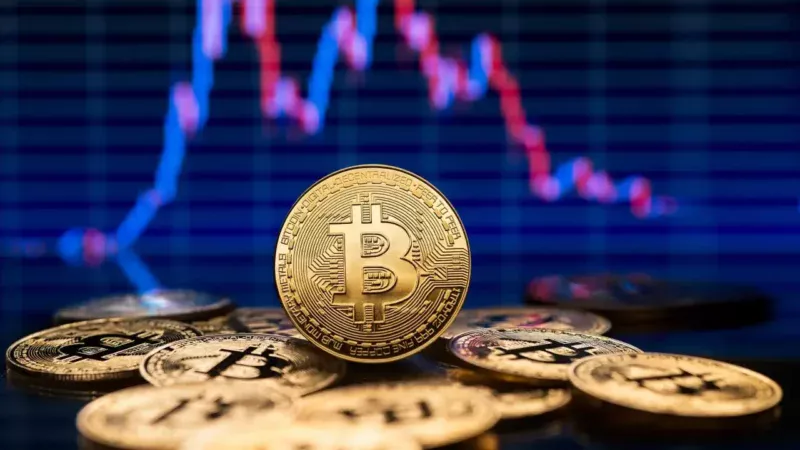Can Bitcoin protect us from the next financial crisis?

A storm brews itself in the global economy. Inflation remains stubborn, interest rates fluctuate on the edge of a stagnant growth and the financial markets are a battlefield of uncertainty.
Traditional finance shows signs of stress, with bankruptcy and growing budget deficits stir up the fear of an impending crisis. In times like this, people look for rescue boats – alternative assets that can preserve prosperity when the old system faltered. The question is: can crypto, especially Bitcoin, be this safety net?
Bitcoin: Protection or risk system?
To understand why Bitcoin is in this discussion at all, we have to judge where traditional finance is today. The inflation from which the central banks had promised that it would be “temporarily” has instead become a continuing problem. The US consumer price index (CPI) remains high, while inflation is constant above the 2%goal of the Federal Reserve. In addition, the increase in interest rates has not limited this trend. Meanwhile, the defaults in the company are increasing, commercial properties are in need and geopolitical uncertainty shakes the global markets.
Despite these warning signals, the stock market remains surprisingly resistant. Technology values and Bitcoin have risen sharply in recent months, driven by optimism in relation to AI and the institutional introduction of cryptocurrencies. But history teaches us that such euphoria can be deceptive. If the sheet turns, the liquidity could dry up quickly – and then the actual test for Bitcoin begins as protection.
Correlation in uncertain times
For years, Bitcoin was celebrated as a “digital gold”, an asset that could offer refuge in times of financial turbulence. However, the reality is more nuanced. While Bitcoin's offer is limited to 21 million, which makes it resistant compared to the inflation pressure of Fiat currencies, its price development often reflects that of technology stocks. Institutional investors have included Bitcoin in their portfolios, which means that it now reacts to the same macroeconomic forces as traditional assets.
This correlation was particularly clear last year. When the market was grown, Bitcoin fell together with shares. When optimism in relation to AI and monetary political loosening increased, Bitcoin recovered. This raises a crucial question: Can an asset that goes hand in hand with risky markets really serve as protection against system failure?
The future of financial system: the role of cryptocurrencies in a changing economy
While short -term volatility can cause doubts about the Bitcoin security status, the long -term success balance speaks for a different story. Bitcoin has already become a financial lifeline in economies that have been plagued by galloping inflation – such as Argentina, Turkey and Venezuela. It offers a decentralized escape before the devaluation of Fiat currencies and restrictive capital controls. The more the traditional financial system faltered, the stronger the position of Bitcoin.
Stable coins also play a crucial role in this new financial paradigm. They are linked to Fiat currencies and offer stability while they remain within the crypto ecosystem. In view of the increasing global economic instability, we could experience an accelerated shift towards blockchain-based assets that offer both security and liquidity outside the banking system.
The idea that cryptocurrencies could displace traditional finance was once a border theory. Today there is a discussion in political and economic circles worldwide. Senator Mike Lee's youngest initiative to dissolve the Federal Reserve and Trumps Signalize for a US bitcoin reserve that digital assets are no longer just one experiment-they are a force that shapes political discussions at the highest level. However, the path to a financial system dominated by cryptocurrencies is still long, but safe. The integration of digital central bank currencies (CBDCs) and regulatory changes could create a hybrid system in which decentralized and central financial models exist side by side. The role of Bitcoin as state assets gives him a real application.
Conclusion: The crypto rescue line
Can cryptocurrencies serve as a safety net against inflation and financial crises? The answer is in the next recession. If inflation remains uncontrolled and economic instability increases, the use of Bitcoin as a global currency and its decentralized nature will boost demand. In the past, recessions were met with money creation and debts that reduce the value of Fiat currencies. On the other hand, the basics of Bitcoin urge to serve as a security against inflation. The next recession will put cryptocurrencies and their benefits to the test.
(Tagstotranslate) Bitcoin Protection (T) Bitget Research (T) BTC (T) Financial Crisis
Source link





